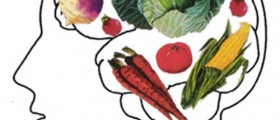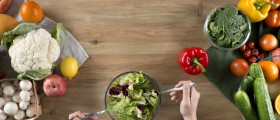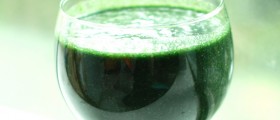
Vegetarianism is becoming increasingly popular today. People are adopting this typical pattern of nutrition for many different reasons. Most of them decide to become vegetarians for ethical reasons, as they believe no animal should suffer, adopting a lifestyle which seeks to exclude all forms of animal exploitation. Others are attracted to vegetarianism for health, religious, political, environmental and even cultural reasons. There are many different forms of vegetarianism and for all of them is equally important to be carefully planned to assure adequate nutrition and proper amounts of proteins, and amino acids for the body's sustenance.
Types of vegan diets
Vegan diets are generally categorized into the three major types. Classical vegan diet doesn’t include any meat, poultry, fish, dairy products or eggs. Generally speaking, this type of diet excludes all foods of animal sources.
Lacto-vegan diet excludes all these foods except dairy products. People following this diet typically eat milk, cheese, yogurt, butter and other milk products. Lacto-ovo vegetarian diet follows the same pattern but also allows for eggs in the diet.
Planning a vegan diet
Vegetarian diet can be very healthy but only if it’s smartly planned, and if it contains all of the nutrients in balanced proportions. The foundation of the vegetarian diet is grains, and they are consumed in about six servings daily. Legumes, nuts and other protein-rich fruits and vegetables are consumed in five servings. Vegetables should comprise for 4 servings, while the fruits and fats account for only two daily servings, each.
Vegetarians should make sure to enjoy a wide variety of foods as no single food can supply the body with all needed nutrients. A real challenge for vegetarians is to tailor their daily diet to substitute natural sources of calcium and vitamin B-12. These nutrients are found in dark green vegetables such as broccoli, kale, and collard greens. People following more rigid vegan diet should eat calcium enriched juices, cereals, soy milk, soy yogurt and tofu. Vitamin B12 is found in vitamin supplements, vitamin-enriched cereals and fortified soy products.
Iodine is another important nutrient that typically lacks in a vegetarian diet. Good source for this mineral is salt enriched with iodine, which is available at any grocery store.
Iron is also important and can be obtained from dried beans and peas, lentils, whole grain products, dark leafy green vegetables and enriched cereals. This mineral is best absorbed with vitamin C. Therefore, vegetarians should include it in the diet.Omega-3 fatty acids are insufficient from plant-based sources, and vegetarians should always use fortified products or supplements or both.

















Your thoughts on this
Loading...